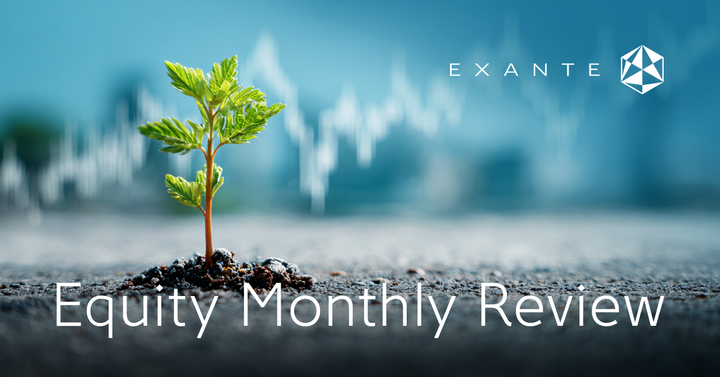By Renée Friedman, PhD
The week in summary:
Welcome to Macro Insights #22. This week markets tried to focus on the reporting season while worrying about the pace of the Fed’s manoeuvres being accelerated and a more negative global growth forecast from the IMF did little to cheer investors. Bond yields continued to rise, corporate bonds in Europe experienced their worst sell-off ever, and growth stocks, e.g. those in the tech sector, continued to have a volatile week.
This week the IMF gave its revised global growth forecast. It now expects global growth to
slow from an estimated 6.1% in 2021 to 3.6% in 2022 and 2023. This is 0.8 and 0.2 percentage points lower for 2022 and 2023 than previously forecast in January. Growth in the Eurozone was revised down to 3.5% in 2022 and 2.5% in 2023. For the US it removed the Build Back Better fiscal policy package from the baseline, added in an earlier withdrawal of monetary accommodation, and continued supply chain disruptions to deliver a new forecast of only 4% growth in 2022 (down 1.2% from January’s forecast) and 2.6% in 2023. In the UK, disruptions related to Omicron and supply constraints (particularly in labour and energy markets) mean that growth is revised down by 0.3 percentage point to 4.7% in 2022 and 2.3% in 2022. The report cited worsening supply-demand imbalances and stated that further increases in commodity prices could lead to persistently high inflation, rising inflation expectations, and stronger wage growth, forcing central banks to take action.
In the US, the Fed funds rate was previously expected to be 2.50% - 2.75% by the end of 2023 although this past week, it has become clearer that the Fed could raise its policy target range to 2.25% - 2.5% by the end of this year. St. Louis Federal Reserve Bank President James Bullard was even more hawkish, stating that it should be increased to 3.5% by the end of the year to slow the highest inflation in over 40 years. Fed Chairman Jerome Powell said on Thursday that a half-point interest rate increase "will be on the table" when the Federal Reserve meets on 3-4 May. He said he felt investors currently anticipating a series of half-point hikes were "reacting appropriately, generally," The Fed does not have a good record of engineering a soft landing when trying to rein in inflation with significant rate hikes. However, growth in the US remains robust with the labour market still very tight with wages rising 5.6% in February. Initial US unemployment claims keep falling, dropping to 184,000 in the week ending 16 April. US labour department data shows that there are currently fewer Americans claiming unemployment benefits than at any time since 21 February 1970.
Forecasts have quickly become dated as inflation, which rose to 8.5% in March, may not yet have peaked. Although the US has abundant shale gas and structural dynamics are very different from Europe’s, inflation could still rise due to rising global commodity prices and the COVID-19 lockdowns in China extending supply chain disruptions and shortages in some industries. Global shipping has also been negatively impacted by the situations in China and in Ukraine. There is also the point that demand remains very strong in the US although that will probably wane as households use their savings and borrowing conditions tighten.
In Europe, money markets are now pricing in 75 basis points of interest-rate hikes by the ECB’s December decision, according to swap contracts linked to the euro short-term rate. That’s up from less than one quarter-point increase expected at the start of the year. The ECB’s deposit rate is currently at a record low of minus 0.5%. According to Belgian Central Bank governor and ECB council member Pierre Wunsch, the ECB could lift policy rates above zero before the end of the year unless the euro-zone economy suffers a severe shock, and it might even have to deploy “restrictive” policy to get surging prices under control. ECB members Luis de Guindos and Martins Kazaks both said this past week that a rate hike in July was possible, echoing calls from the ECB’s Joachim Nagel, who said interest rates may be lifted early in the third quarter. Latvia’s Martins Kazaks told Bloomberg a rate increase in July is “possible,” and that there are “no reasons” to disagree with what markets are pricing for the rest of the year.
In the UK, Bank of England (BoE) Governor Andrew Bailey said on Thursday that the bank was “now walking a very tight line between tackling inflation and the output effects of the real income shock.” He made clear that the bank was aware of the risk that trying to control inflation could create a recession. BoE policymaker Catherine Mann, on Thursday said, “we can look at whether or not an additional 25 basis points or more might be necessary to keep inflation anchored.” She also noted the increased volatility in financial conditions since the March meeting and said that would also have to be considered. Her main focus is whether or not the UK consumer can continue to support the economy. Inflation hit 7% in March. The BoE has raised interest rates three times since December and is expected to do so again at its next meeting in May, although the pace of interest rate rises may now be less certain. Governor Bailey said a key question was whether the labour market would slow down. The UK unemployment rate fell recently to its joint lowest in almost 50 years at 3.8%, but real, inflation adjusted earnings were the lowest since 2013 in February.
Oil prices have been volatile due to the drop in US oil inventories and concerns over limited supplies from Russia and Libya. There has been growing talk of a ban on Russian oil, but the EU seems to be intent on organising alternative source options before it takes further action.
Things to look out for this coming week
- In Europe on Friday there are the French S&P Global Composite PMI and Manufacturing PMIs, German S&P Global/BME Composite PMI, Manufacturing PMI and Services PMIs, and Eurozone S&P Global Composite PMI, Manufacturing PMI and Services PMIs. On Monday there is German IFO business sentiment, current assessment, and expectations survey data. On Wednesday look out for German GfK Consumer Confidence Survey data. On Thursday is Spanish CPI, HICP and Unemployment Survey data, Italian Business and Consumer Confidence survey data, Italian Industrial Sales data, Eurozone Business and Consumer Confidence survey data, German CPI, the German Harmonised Index of Consumer Prices, and the ECB will release its latest Economic Bulletin.
- In the US on Friday there is the S&P Global Composite PMI, Manufacturing PMI and Services PMIs. On Monday there is the Chicago Fed National Activity Index. On Tuesday is Durable goods orders, Non-defence capital goods orders, the Housing Price Index, S&P/Case-Shiller Home Price Indices, New Home sales data and Consumer Confidence data. On Wednesday is Pending home sales data. On Thursday there will be initial and continuing jobless claims data, Core Personal Consumption Expenditures data, Personal Consumption Expenditure Prices, and, most importantly, preliminary estimates of Q1 GDP.
- In the UK on Friday look out for GfK Consumer Confidence, retail sales, S&P Global/CIPS manufacturing PMI and Services PMI.
The French Presidential election will take place on Sunday, 24 April with voters choosing between President Emmanuel Macron and Marine Le Pen, leader of the right wing National Rally party..
And finally the 2022 Spring Meetings of the World Bank Group and the International Monetary Fund (IMF) will finish on 24 April 2022.
The fine art of crisis juggling
The past 2 years have seemed, to many, like a series of crises, one shock coming after another. Many are already in a state of crisis fatigue, burned out in response to the chronic stress that these challenging events can cause.
The Black swan event of Covid followed by the Russian-Ukrainian crisis has, as noted by US Treasury Secretary Janet Yellen in a 13 April speech, “redrawn the contours of the world economic outlook. “
The past two years events have also led to a new round of predictions that the end of globalisation is nigh. The global pandemic and the events in Ukraine have made very clear that supply chains are fragile. As noted by ECB President Christine Lagarde during a discussion panel on Thursday, these crises will make us revisit the terms of trade, who we trade with, the principles on which we are trading, and reorganise supply chains. However, as discussed by Steven A. Altman and Caroline R. Bastian in their article The State of Globalization in 2022 in the Harvard Business Review, global cross-border flows have rebounded strongly since the early part of the pandemic. Events in Ukraine will likely reduce many types of international business activity and cause some shifts in their geography, but it will not lead to a collapse of international flows.
The other shocks or crises that are not going away are related to climate. It is clear that Mother Nature's retaliations for what humankind has been doing to the planet will not just stop; the current flooding in South Africa, the increased incidence of forest fires in North America and Australia, etc. are just the latest examples. The fact that the number of weather, climate and water extreme incidents are increasing and will become more frequent and severe in many parts of the world as a result of climate change was noted by WMO Secretary-General Prof. Petteri Taalas in August 2021. While we have been so focused on Black and even Grey swan events, we still have to remember that the Green swan events are ever more likely and will cause multiple crises in their wake.
The idea of a world where economic efficiency alone drives patterns of international flows was always a myth. But, as Kristalina Georgieva, the IMF's managing director, said on Thursday during that same panel discussion with Christine Lagarde and Fed Chair Jerome Powell, “the quality of the world is not just the quality of our economies that is at stake.” For weary investors and traders this means that they will have to develop a coping mechanism to avoid crisis fatigue or they may otherwise be caught unawares and unprepared.
DISCLAIMER: While every effort has been made to verify the accuracy of this information, EXT Ltd. (hereafter known as “EXANTE”) cannot accept any responsibility or liability for reliance by any person on this publication or any of the information, opinions, or conclusions contained in this publication. The findings and views expressed in this publication do not necessarily reflect the views of EXANTE. Any action taken upon the information contained in this publication is strictly at your own risk. EXANTE will not be liable for any loss or damage in connection with this publication.
Dit artikel wordt u alleen ter informatie verstrekt en mag niet worden beschouwd als een aanbod of uitnodiging tot het kopen of verkopen van beleggingen of gerelateerde diensten waarnaar hier mogelijk wordt verwezen. Handelen in financiële instrumenten omvat een aanzienlijk verliesrisico en is mogelijk niet geschikt voor alle beleggers. In het verleden behaalde resultaten bieden geen betrouwbare indicatie voor toekomstige resultaten.






